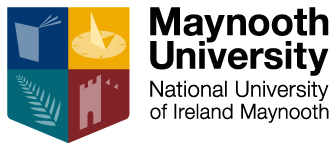| |
This module offers a general introduction to European culture from antiquity to the present day through an exploration of key texts of Western literature (and some aspects of non-Western literature). The texts on the course have been selected on the basis that they influence, directly or indirectly, the assumptions and contexts of “Western Culture” as it has evolved. The course emphasises the study of primary texts in their original contexts and the history of their subsequent transmission and reception. Students will consider key texts that have reflected on the evolving question of what it means to be a human being and explore influential ideas that define the Western worldview and govern the production and consumption of what we experience as “literary texts”. In addition to the concept of the “great book’, the module will also look at current ideas in popular, non-elite and non-literate contexts. Students will be able to explore the impact of ideas in a range of areas, such as economic and social conditions, power structures, individual desire, sexuality, gender, the unconscious, art, literature, science, and philosophy.
Structure:
A weekly 2-hour seminar on a specific text
A 1-hour tutorial focusing on a close-reading of the text
Each seminar will be divided into two parts, with an hour-long presentation from a lecturer followed by an hour-long discussion in which all students are required to contribute.
In addition, a number of seminars will also invite an academic from a different discipline to offer a different context and critical approach to the text.
Students are expected to have read the core text and any additional assigned readings prior to the seminar and tutorial in order to fully participate in discussions.
Students will submit 3 short written reflections on the core texts over the course of the module.
The mark for the module will be derived from a combination of class participation, 3 short written reflections, a mid-term essay and a final essay.
Texts:
Texts for the module might be chosen from among the following (with at least one philosophical text; one classical text; one literary text and one political text):
The Bible
The Qur’an
Homer, The Odyssey
Sappho, “Hymn to Aphrodite”
Virgil, The Aeneid
One Thousand and One Nights
St. Augustine, Confessions
William Shakespeare, Hamlet
Adam Smith, The Wealth of Nations
James Boswell, The Life of Samuel Johnson
Edmund Burke, Reflections on the Revolution in France
Mary Wollstonecraft, A Vindication of the Rights of Woman
Karl Marx and Fredrick Engels, The Communist Manifesto
Jane Austen, Mansfield Park
Ralph Waldo Emerson, Nature
Henry David Thoreau, Civil Disobedience
George Eliot, Middlemarch
Charles Dickens, Great Expectations
Joseph Conrad, Heart of Darkness
Sigmund Freud, Civilisation and its Discontents
Franz Fanon, The Wretched of the Earth
Simone De Beauvoir, The Second Sex
Germaine Greer, The Female Eunuch
Edward Said, Culture and Imperialism
|
 GREAT BOOKS - 1
GREAT BOOKS - 1

